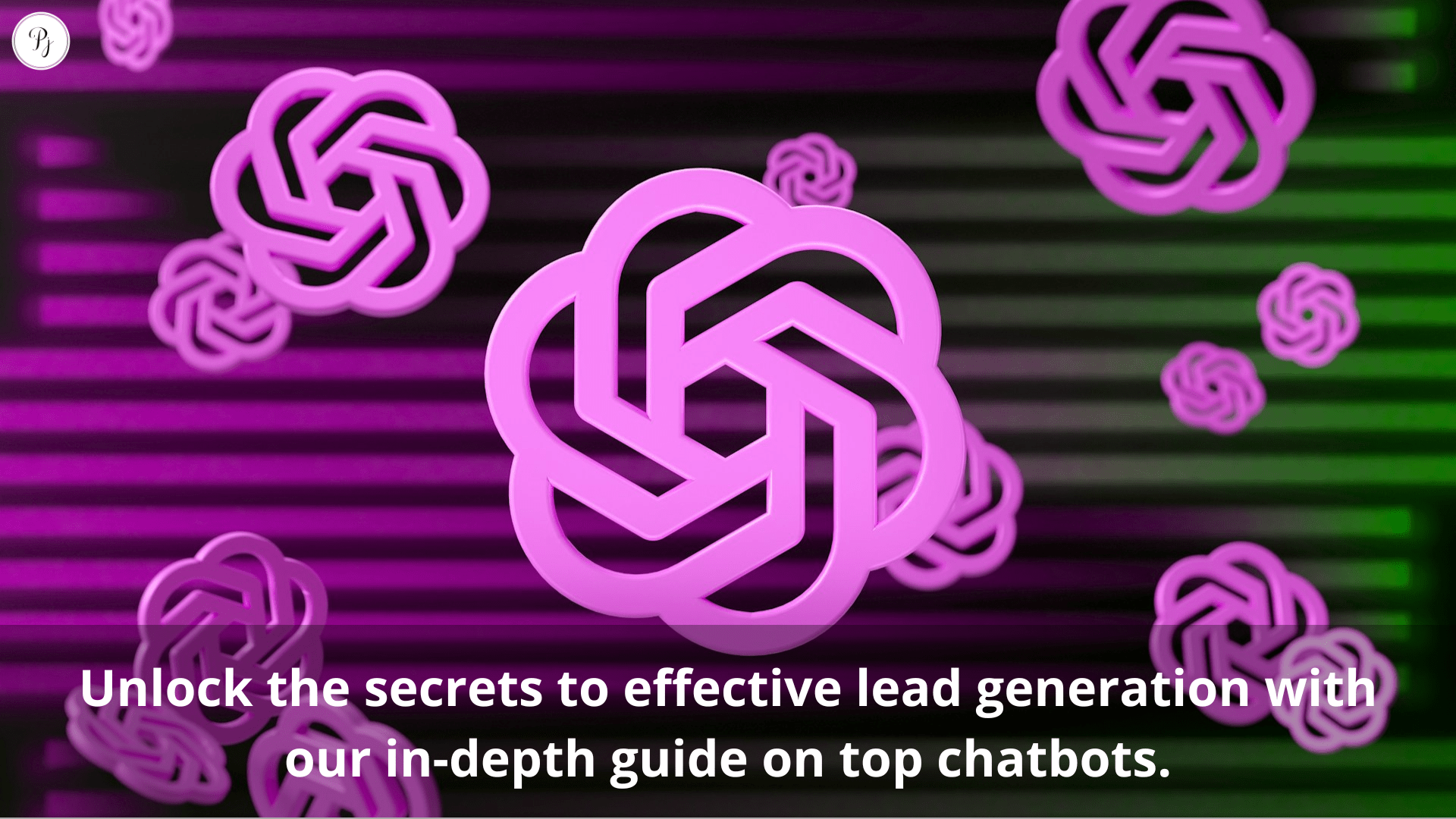Chatbots have become a key tool for digital marketing in the digital age, changing the way companies interact with potential customers. These AI assistants are changing the way we generate leads, providing personalized experiences and automated repetitive tasks that have become an essential element of this endeavor.
The Evolution of Chatbots for Business
The chatbots, from simple text-based interfaces to advanced AI tools that can talk fluidly and respond intuitively, have changed radically. This development has enabled chatbots, which serve as virtual sales representatives and marketing analysts, to play an important role in the operation of businesses.
Key Features of an Effective Lead Generation Chatbot
Effective lead-generation chatbots are not just a program that responds to user inputs, they’re sophisticated tools for engaging, understanding, and convincing potential customers. Some key elements are necessary for this to be achieved:
- Personalization
-
- Adaptive Conversations: The chatbot should be able to tailor the conversation based on the user’s previous interactions, preferences, and behavior.
- User Recognition: Ability to recognize returning users and recall past conversations to create a continuous and personalized experience.
- Integration
-
- CRM Integration: Seamless integration with Customer Relationship Management (CRM) systems to transfer lead information efficiently.
- Marketing Tools Compatibility: The chatbot should work in tandem with email marketing software, analytics tools, and other marketing platforms.
- Automation
-
- 24/7 Availability: Unlike human agents, chatbots can operate round-the-clock, ensuring no lead is left unattended.
- Lead Qualification: Automated processes to qualify leads by asking the right questions and gauging user responses.
- Follow-up: Capability to send follow-up messages or emails to keep leads engaged.
- Analytics
-
- Data Collection: Collects data from interactions, providing insights into user behavior and preferences.
- Performance Tracking: Monitors key metrics such as engagement rates, conversion rates, and response times.
- Feedback Analysis: Uses customer feedback to refine the chatbot’s approach and improve user experience.
- Scalability
-
- Handling Volume: The chatbot should be able to handle a large number of conversations simultaneously without compromising quality.
- Growth Adaptation: As the business grows, the chatbot should easily scale up to meet increased demand.
- User Experience
-
- Intuitive Interface: The chatbot should have a user-friendly interface that makes interactions simple and enjoyable.
- Quick Response Time: Fast responses are crucial to keep users engaged and prevent drop-offs.
- Multilingual Support: To cater to a global audience, the chatbot should support multiple languages.
- Security
-
- Data Protection: Ensures user data is handled securely, complying with regulations like GDPR.
- Spam Prevention: Incorporates measures to prevent spam and malicious activities.
- Customization
-
- Brand Alignment: The chatbot’s design and tone should align with the brand’s identity.
- Script Flexibility: Allows for easy updates and changes to the conversation scripts based on user feedback and business needs.
- Human Handoff
-
- Escalation Protocol: In cases where the chatbot cannot handle a query, it should smoothly transfer the conversation to a human agent.
- Agent Collaboration: Provides support to human agents by supplying relevant information and context for the ongoing conversation.
The combination of these features ensures that a chatbot can not only capture leads but also nurture them effectively, leading to a higher conversion rate and a better return on investment. These chatbots are a vital cog in modern lead generation strategies, as enterprises continue to compete against an increasingly digital marketplace.

Top Chatbots for Lead Generation
Chatbots are becoming an essential tool for generating leads in the competitive field of online marketing. In this article, we look at some of the most prominent chatbots that are gaining in popularity within the industry:
- Chatbase
-
- AI-Powered: It uses advanced AI models, such as GPT Turbo, GPT-4, and GP4T3.5, for sophisticated conversation.
- Lead Qualification: It provides a strong qualification and nurture capability, enabling the process of capturing leads to be streamlined.
- Customization: It is easy to program, allowing for targeted questions and the collection of relevant visitor information.
- Drift
-
- Real-Time Engagement: Provides AI-powered lead-generation chatbots and in-app messaging tools for immediate interaction.
- Proprietary Technology: Powered partly by its proprietary technology, ensuring unique features and capabilities.
- Instabot
-
- Interactive: Engages users with intelligent conversations to determine if they fit the profile of a lead.
- User Experience: Focuses on providing a wholesome experience for potential leads through interactive dialogues.
- Landbot
-
- Conversational Flows: Allows for the creation of conversational flows without coding, making it accessible to a wider audience.
- NLP Features: Includes natural language processing for human-like discussions.
- Botsonic
-
- Versatility: Capable of handling various lead generation and qualification scenarios.
- Efficiency: Takes into consideration multiple criteria for lead qualification, more than an average human specialist could.
The cutting edge of lead generation technology is represented by these chatbots. They’re not just tools, they’re partners in the development of a business. They release human resources for more strategic tasks by automating the capture, qualification, and nurturing of leads. They ensure that opportunities are not missed, and every potential lead is taken into account with their availability 24 hours a day.
These chatbots are showing that they can obtain leads that become sales as businesses continue to search for a definitive strategy in the field of acquiring new customers. They are invaluable assets for any company looking to increase its lead generation efforts, thanks to their AI capabilities, together with user-friendly interfaces and integration with existing business systems.
Choosing the Right Chatbot for Your Business
Understanding your audience, defining objectives, assessing the features of a chatbot, and making sure that it is compatible with your brand logo are all important considerations when selecting an ideal chatbot. Your lead generation and customer engagement efforts can be significantly affected by the right chatbot.
Implementing a Chatbot for Maximum Impact
The implementation of a chatbot calls for clear objectives, audience knowledge, choice of appropriate platform, design of conversation flow, and integration with your systems. The implementation of a good chatbot can increase the level of customer satisfaction, as well as provide important insight into customers’ behavior.
Case Studies
The effectiveness of chatbots in managing customer interactions, connecting patients with physicians, collecting leads, and improving qualification has been demonstrated by the actual applications of chatbots in businesses such as HelloFresh, HealthTap, Turva & Vrde.
Future Trends in Chatbot Technology
The landscape of chatbot technology is ripe for exciting developments as we look ahead. The future of chatbots is expected to reflect several key trends:
- Enhanced Conversational Abilities
-
- Natural Language Understanding: Chatbots will become more adept at understanding and processing human language, making interactions more natural and intuitive.
- Emotional Intelligence: Future chatbots will be able to detect and respond to user emotions, providing a more empathetic and personalized experience.
- Predictive Analytics
-
- Anticipating User Needs: By analyzing past interactions, chatbots will predict user needs and provide proactive assistance.
- Real-Time Decision Making: Chatbots will offer real-time suggestions and solutions based on predictive analytics.
- Omnichannel Support
-
- Seamless Integration: Chatbots will offer consistent support across various platforms, providing a unified experience for users.
- Cross-Platform Analytics: They will gather insights from multiple channels to offer a more comprehensive understanding of user behavior.
- Advanced Personalization
-
- Individualized Experiences: Chatbots will tailor conversations and recommendations to each user’s unique preferences and history.
- Contextual Awareness: They will be contextually aware, adapting their responses based on the user’s current situation and past interactions.
- Autonomous Operations
-
- Self-Learning: Chatbots will continuously learn and improve from each interaction without the need for human intervention.
- Automated Optimization: They will autonomously optimize their performance and conversation flows over time.
- Expanded Commerce Capabilities
-
- Transaction Handling: Chatbots will handle transactions, from product recommendations to payment processing.
- Post-Purchase Support: They will provide comprehensive post-purchase support, including order tracking and returns.
- Integration with IoT Devices
-
- Smart Home Control: Chatbots will integrate with IoT devices, allowing users to control smart home features through conversation.
- Wearable Technology: They will also be present in wearable technology, offering on-the-go assistance and notifications.
- Voice Technology
-
- Voice-Enabled Chatbots: The integration of voice recognition will make chatbots accessible through voice commands.
- Multilingual Support: Chatbots will support multiple languages, making them more accessible to a global audience.
- Enhanced Security
-
- Data Protection: With the increasing importance of data privacy, chatbots will employ advanced security measures to protect user information.
- Fraud Detection: They will also play a role in detecting and preventing fraudulent activities.
- Broader Industry Adoption
-
- Diverse Applications: Chatbots will find applications in a wider range of industries, from healthcare to education and beyond.
- Custom Solutions: Businesses will adopt custom chatbot solutions tailored to their specific industry needs.
These trends show a future where chatbots will become more and more integral to our everyday lives, providing enhanced assistance, personalization, or effectiveness. The potential for chatbots to change the way businesses operate and interact with each other is limitless as technology advances.
Conclusion
Chatbots are the disruptive force of digital marketing, which is essential for every business to thrive in the digital age. They’re offering a full range of services, including round-the-clock engagement, personalized experiences, and seamless integration into marketing strategies. Chatbots will shape our way of connecting with our audience and driving our businesses forward as they continue to evolve.
Check out more articles!








